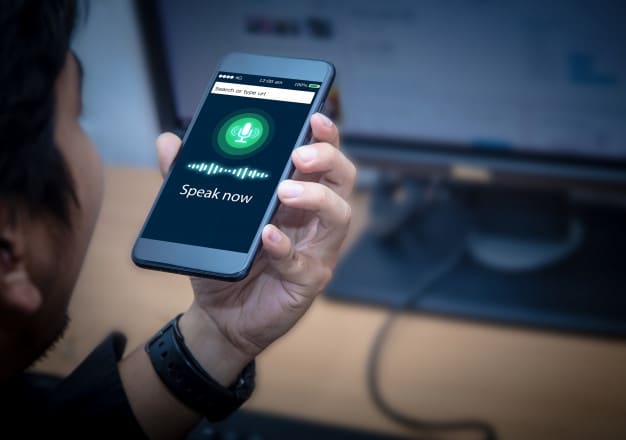Do you need to use AI to practice speaking English?
Many AI tools are now advertised that can detect and correct your pronunciation or grammar errors immediately. This may sound very attractive, but English communication is not simply about saying the right words or the right grammar.
Hello! I am AJ Hoge, the author of the book: Effortless English, Learn To Speak English Like a Native Speaker.
Many students asked me: "Should I use AI tools to practice speaking English? Are they useful?"
Dear friends, we are living in the era of Artificial Intelligence (AI). Recently, I have also seen a lot of AI technology application tools advertised with statements such as: helping people communicate and learn foreign languages easier and faster.
Is this statement accurate? And more importantly, should you use AI applications in the process of practicing speaking English? Personally, with more than 20 years of experience in teaching English to thousands of students, I would like to answer: NO.

Do you need to use AI to practice speaking English?
Why is that? Let's take a closer look:
1. Speaking practice is not just about correcting mistakes or talking a lot
Many AI tools are now advertised that can detect and correct your pronunciation or grammar errors immediately. This may sound very attractive, but English communication is not simply about saying the right words or the right grammar. Effective communication requires naturalness, confidence, and especially the ability to understand, listening skills - which AI does not really support effectively.
In fact, good listening plays a more important role. You need to listen to identify sounds, intonation, and how native speakers use the language in each specific context. This is a fundamental skill that AI can hardly replace or improve for you.
2. Important factors when learning to speak English
Learning to speak English is not only encapsulated in correct pronunciation. According to academic research, the development of effective speaking skills needs to include the following factors:
A) Learn pronunciation
Pronunciation correctly is the first step for others to understand you. However, pronunciation is not merely imitating AI; you need to practice regularly with actual materials or teachers, to ensure that your tone is not "mechanical" or out of context.
B) Practice reflexes, answer questions
One of the important skills when learning a foreign language is the ability to react quickly to questions. Practicing answering not only helps improve language ability but also builds confidence when communicating. You can start with simple questions, then gradually increase the complexity. Practicing regularly with teachers or through self-study exercises will help you form more natural language reflexes.
C) Practice intonation
Intonation is the soul of language. AI can recognize sounds and give feedback, but it is difficult to express richness in emotions, accents, or rhythms - factors that create naturalness when communicating.
D) Speaking style (grammar and vocabulary)
When speaking, you need to use flexible language, suitable for the context. AI can only provide basic sentence patterns, but if you depend on it, you may be limited to structures and vocabulary that are too simple.
E) Accumulate and expand knowledge
A good communicator not only speaks properly but also knows how to present ideas and show understanding. This requires you to read a lot, experience and interact with real people, which AI cannot replace.
F) Learn to listen, recognize sounds
As mentioned above, listening skills play a key role. AI tools can help you practice listening through artificial conversations, but lack naturalness and practical context.
3. AI can support, but not replace
This does not mean that AI is completely useless. These tools can be an add-on, helping you check pronunciation, learn vocabulary, or practice speaking in cases where you don't have a companion. However, relying entirely on AI can make you lose the opportunity to practice with the real context and communicate with real people.

4. How to practice speaking English more effectively?
• Listen more: Listen to real conversations, watch movies, or join classes with native teachers.
• Real interaction: Join English clubs, practice speaking with friends or foreigners.
• Learn from practice: Instead of relying entirely on AI, learn from experience and rich resources.
Conclusion: AI tools are just a support tool, not a perfect alternative to learning English for communication. To really progress, you need to combine many different methods and especially focus on listening and interacting with real people.
If you want to know more about how to practice listening effectively, you can refer to my detailed article here.
Hope my sharing will be useful for you.
Good luck!
AJ Hoge -- EffortlessEnglishSystem.Com: Learn To Speak English powerfully, fluently, and automatically.
OTHER ARTICLES
SPECIAL OFFER - LAST CHANCE!
Save 51% and get an additional $50 off when registering for the Effortless English Vip Program Lifetime package.
Promotion time only left:

